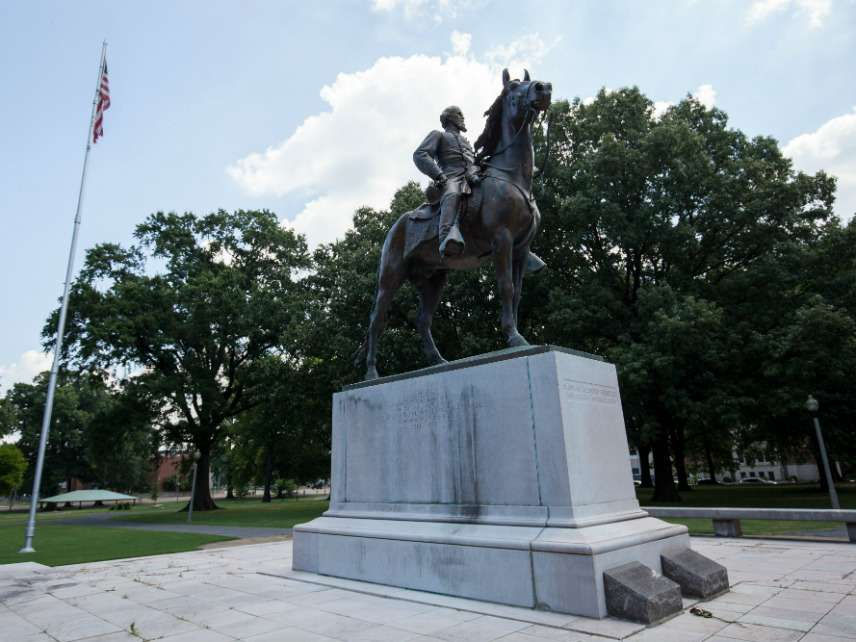Memphis Privatizes Its Parks to Get Rid of Confederate Statues
- OurStudio

- Dec 21, 2017
- 2 min read

Raffe Lazarian/ZUMA Press/Newscom
A Tennessee city has come up with a novel way to get rid of Confederate monuments: privatization.
Yesterday the Memphis City Council unanimously agreed to sell Health Science Park and an easement at Fourth Bluff Park for $1,000 apiece to Memphis Greenspace, a local nonprofit. That same night, Greenspace removed the statue of the Confederate general and Ku Klux Klan grand wizard Nathan Bedford Forrest.
Tennessee's Heritage Protection Act, you see, forbids the removal of historic statues from public land. Passed in 2013, the act states that "no memorial regarding a historic conflict, historic entity, historic event, historic figure, or historic organization that is, or is located on, public property, may be removed, renamed, relocated, altered, rededicated, or otherwise disturbed or altered."
The law was itself a response to Memphis' attempt simply to change some parks' names. (Among them: Confederate Park, Jefferson Davis Park, and Forrest Park). The council voted in 2015 to remove the statue of Forrest but was blocked by the state law. The city then applied to the Tennessee Historical Commission for a waiver to remove the statue, but in October the commission declined the request.
With no other option for removing the statues, the city opted to privatize the parks. As the statue removal was getting underway, Memphis Mayor Jim Strickland tweeted: "All of this is privately financed—the purchase of the parks, the removal of the statues, and Memphis Greenspace's future maintenance of the park."
With the removal of Forrest's statue, Memphis joins a number of other cities, including New Orleans, Baltimore, Austin, and Lexington, that have removed statues of Confederate leaders this year.
The presence of Confederate statues, memorials, and flags has become increasingly controversial in recent years, culminating in lethal violence at an alt-right rally in Charlottesville, Virginia, this year. By selling off its statues, Memphis demonstrates how private spaces can minimize this kind of social conflict.
Public spaces are expected to reflect the views and feelings of the general public. When such spaces memorialize things where public opinion is hotly divided, conflict will erupt as different groups will push their mutually exclusive claims on that public space. But private spaces aren't expected to represent the views of anyone but their owners. If you don't like Greenspace's removal of the Forrest statue, you're free to buy a place to put up a statue of your own.




Comments